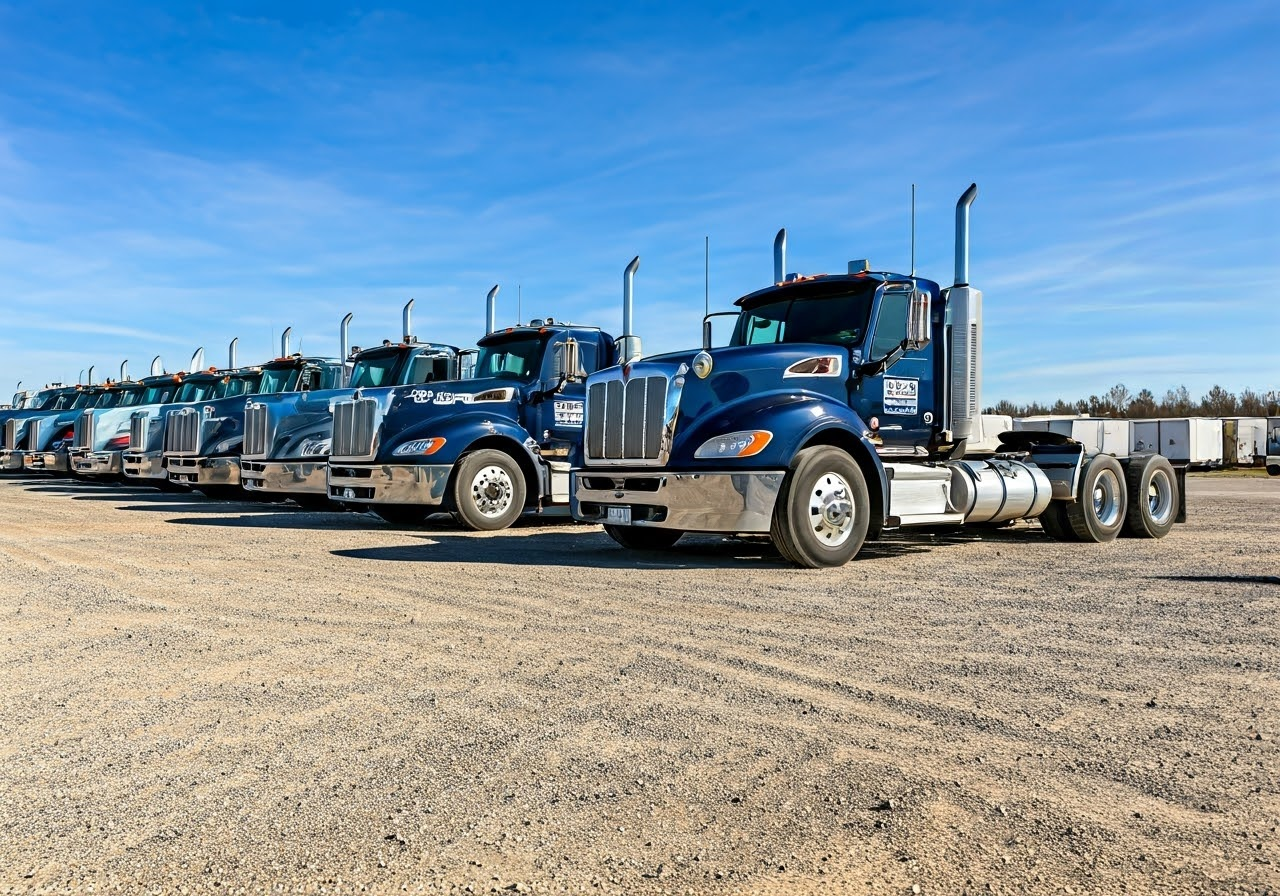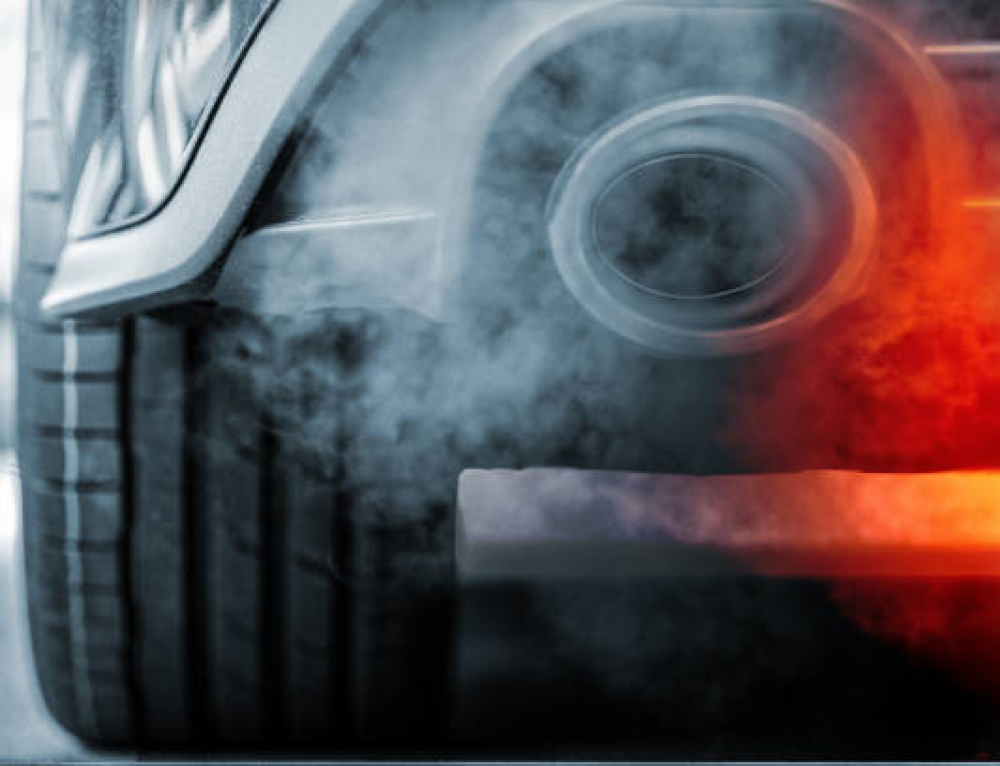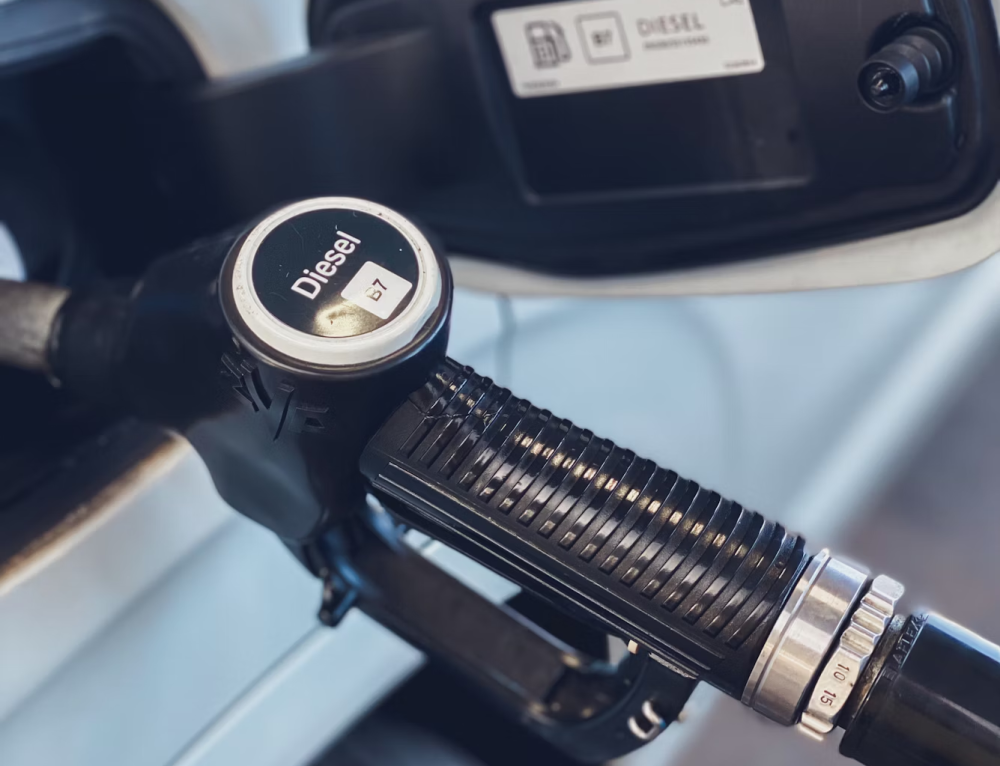DOT inspections are never optional, especially when driving your truck across the state. Out-of-service violations, fines, or breakdowns in the middle of a job can affect your business operations.
And guess what? It will also cause delayed deliveries and unexpected diesel repair costs. The worst case? Repeated non-compliance can tarnish your safety record and reputation.
The good news? Interstate diesel repair services can help. They are tailored for DOT compliance. Join us in this blog as we show you how interstate diesel repair services help truck owners to stay compliant on the road.
Are you ready? Let’s get started!
Key Highlights
- Ensuring your trucks are DOT compliant is very necessary. Interstate diesel repair technicians understand this. That’s why they will help you to properly repair any issues in your truck.
- An interstate diesel repair technician will use their modern diagnostic tools to check your diesel truck. They will notice potential issues and address them on time.
- They have experience in diesel engines and use modern diagnostic tools for repairs. This helps them to identify issues and repair them on time.
Understanding the Importance of Having DOT-Ready Trucks
A DOT-ready truck meets all federal and state safety standards set by the Department of Transportation. This includes things like working brakes, lights, and proper depth of the tire tread.
That’s not all. It also involves safe steering systems, emissions standards, and secure cargo load mechanisms.
Every truck must pass the annual DOT inspections and random roadside checks. This helps them to avoid costly fines, unexpected downtime, out-of-service violations, and potential damage to the safety rating and reputation of the company.
Preemptive Checks for Roadside Inspection Readiness
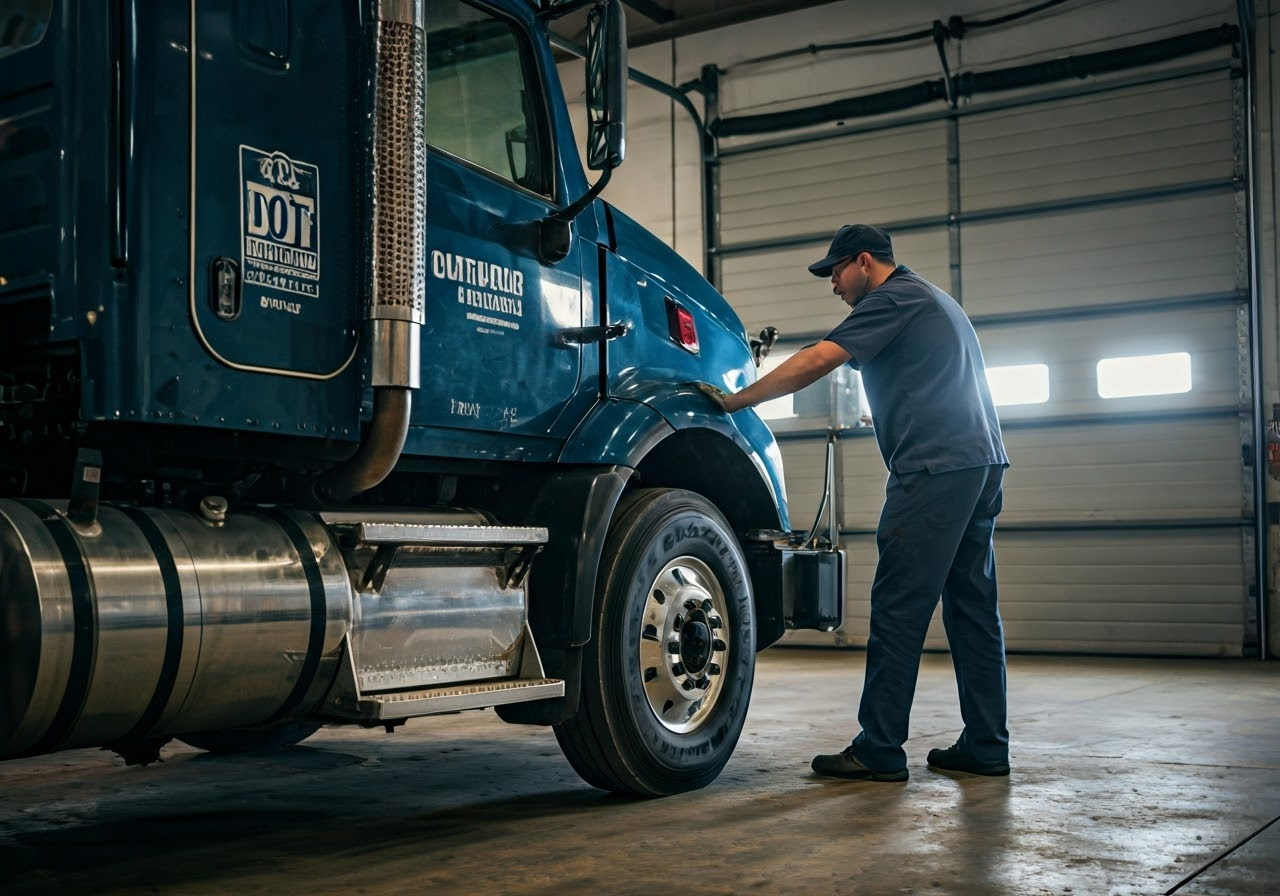
Roadside inspections are usually unavoidable for fleet operators. That is why you should be prepared to ensure a smooth passage. Preemptive maintenance checks are an important aspect of keeping your truck in compliance with DOT standards.
An interstate diesel repair technician will use their modern diagnostic tools to check your diesel truck. They will notice potential issues and address them on time.
These checks include scrutinizing brake systems, lighting, and emission controls that commonly face scrutiny during inspections. A proactive, preventative maintenance approach saves time and resources. It also helps you to avoid cascading issues on the road.
What inspections are critical for DOT compliance?
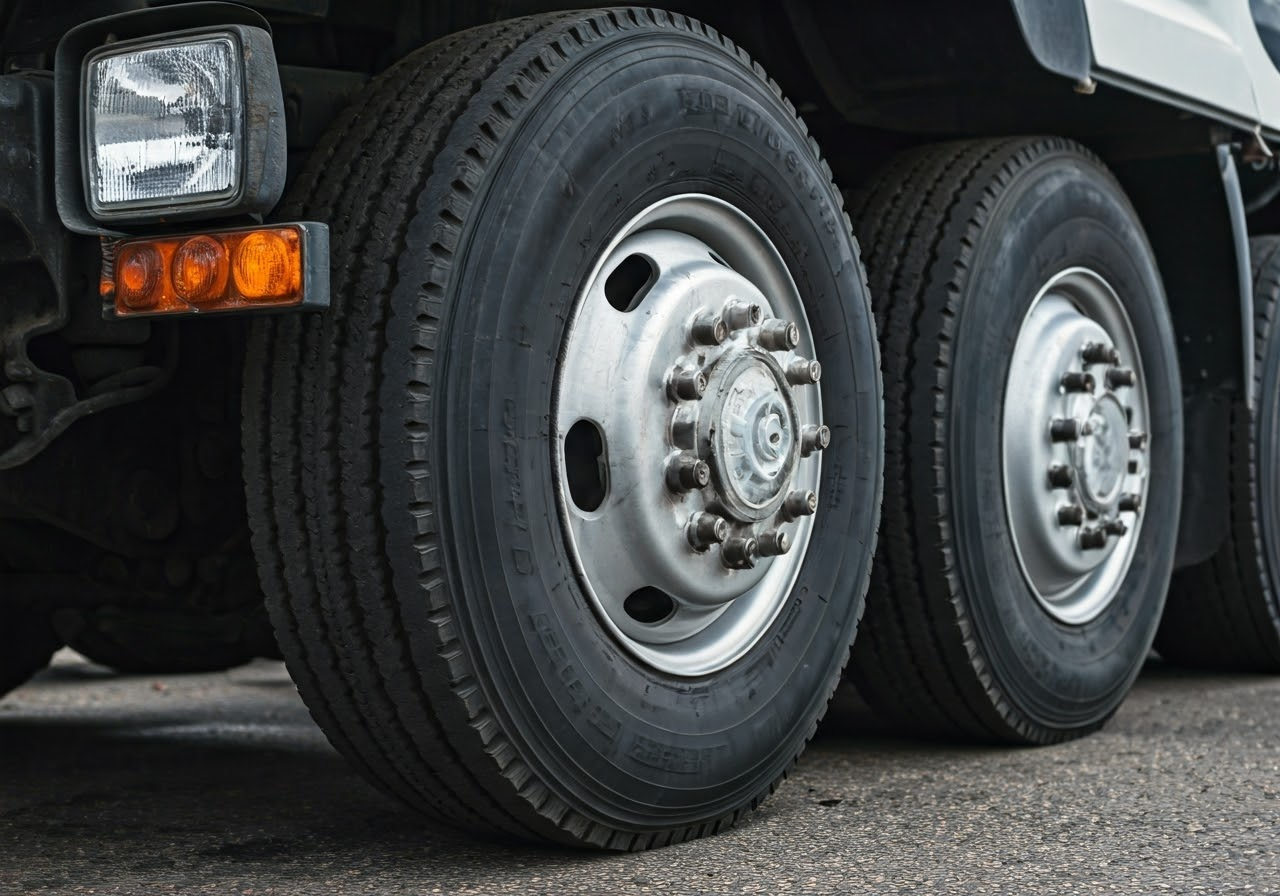
DOT compliance inspections usually focus on crucial aspects of truck safety and performance. For instance, regular brake checks are very important. This helps to ensure they meet the performance requirements that are necessary for safe operation.
Preventive maintenance of these systems reduces the risk of accidents. It also ensures compliance with DOT standards.
Lighting systems are another element that is usually checked during routine inspections. Faulty headlights and signaling lights can lead to immediate violations. You should ensure your lighting components are in good working condition. This will help you avoid penalties.
Additionally, emissions and engine performance checks, especially for Detroit Diesel engines, are among the most scrutinized areas. Trucks must meet the environmental standards for emissions to pass inspections.
Investing in proper checks and timely interstate diesel repairs is important. It helps to ensure your truck meets the regulatory requirements. This encourages safer and compliant long-term operations.
Common issues identified during preemptive checks
Preemptive maintenance helps to uncover recurring issues. When some of these issues are unchecked, they could lead to DOT violations. Many of these concerns involve important systems that are connected directly to compliance.
- Brake wear-and-tear detected in fleets operating with Cummins engines.
- Exhaust system leaks leading to failed emissions compliance for Detroit Diesel trucks.
- Lighting issues, such as faulty signals or brake lights.
- Deterioration of suspension systems that affects the safety of truck drivers on the road.
Addressing these issues during preventative checks is very important. This is because it helps you to ensure your truck is in good condition before inspection. Contacting a skilled interstate diesel repair technician will help you get quality repairs.
They have experience in diesel engines and use modern diagnostic tools for repairs. This helps them to identify issues and repair them on time. When your systems are corrected early, the risk of downtime during inspections will reduce.
The Role of Interstate Diesel Repair Technicians in Preparing DOT-Ready Trucks
Interstate diesel repair technicians help in keeping trucks ready for DOT regulations. Here are some services they provide:
1. Emissions compliance
Emissions standards are tightening, and diesel techs are trained to maintain and repair DEF (Diesel Exhaust Fluid) systems. They also repair EGR valves and DPF filters and ensure they all meet EPA guidelines.
2. Documentation and compliance reporting
Interstate diesel technicians usually help to keep proper records of service and repairs. This is very important for DOT audits and inspections. Their reports are part of the information that proves your fleet is ready for the road.
3. Electrical system checks
Modern diesel trucks are built with electronics. This includes GPS units and engine control modules. A diesel repair technician will inspect and repair your truck wiring and connectors.
They also check your batteries and alternators to ensure your electrical systems work very well. Especially since faulty lighting or signal systems are common causes of DOT citations.
4. Emergency repairs for on-the-road issues
Breakdowns far from home are inevitable. Especially for fleets that operate across state lines. Well, guess what? Diesel techs usually provide mobile or roadside repair services. This helps you to get your trucks safely back on the road. That’s not all. It also reduces downtime.
We Can Help!
Ensuring your trucks are DOT compliant is very necessary. Interstate diesel repair technicians understand this. That’s why they will help you to properly repair any issues in your truck.
And guess what? They don’t stop there. These repair experts, like Phoenix Diesel Repair, will make sure the repairs meet the DOT compliance standards. This gives you peace of mind while traveling interstate.
If you live in Arizona, in the United States, then Phoenix Diesel Repair is the right diesel mechanic for your interstate diesel repairs. Whether you have an engine problem or any other type of repairs, our certified expert technicians can help.
We have years of experience in repairing diesel truck issues. That’s not all. We also use modern tools and repair methods to give our customers quality and affordable services.
We can help you get back on the road in no time. Reach out to us and let’s help you ensure your trucks meet the DOT standards.
Frequently Asked Questions
Why is interstate diesel repair important for DOT compliance?
Interstate diesel repair is essential because it helps identify and fix issues that could lead to DOT violations, such as worn brakes, faulty lights, or emissions problems. Staying compliant avoids costly fines, out-of-service orders, and protects your safety rating.
What services are included in interstate diesel repair?
Interstate diesel repair services typically include:
Brake system inspections and repairs
Emissions system maintenance (DEF, EGR, DPF)
Electrical system diagnostics (lights, batteries, alternators)
Suspension and steering checks
Mobile roadside repair and emergency service
Maintenance record documentation for DOT audits
How does preemptive maintenance help with DOT inspections?
Preemptive maintenance as part of interstate diesel repair identifies issues before they become violations. Technicians use advanced diagnostic tools to catch brake wear, lighting faults, or exhaust leaks—helping you pass inspections and avoid downtime.
Can interstate diesel repair help during roadside breakdowns?
Yes. Many interstate diesel repair providers offer emergency mobile services to handle breakdowns on the road. These quick-response repairs help minimize delays and get your truck back on route safely and efficiently.
How often should I schedule interstate diesel repair services?
It’s recommended to schedule interstate diesel repair services regularly—ideally before long hauls or DOT inspections. Routine checks can prevent unexpected failures, ensure compliance, and extend your truck’s lifespan.

